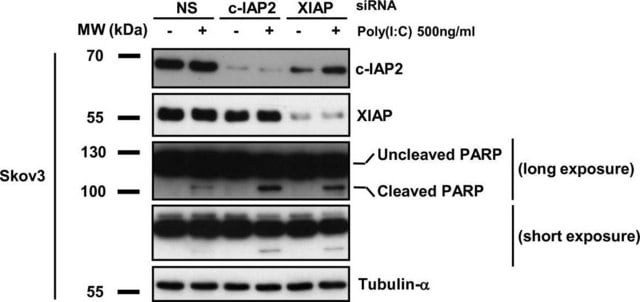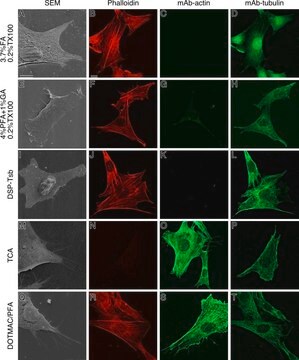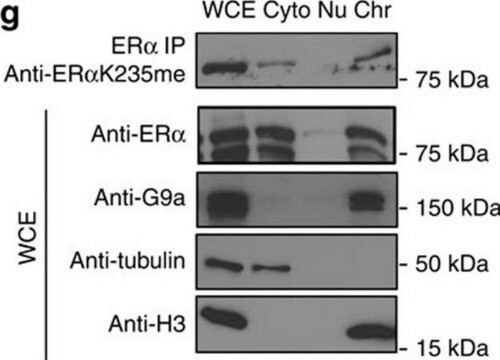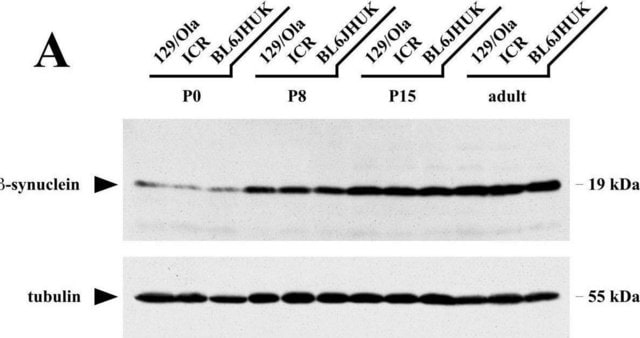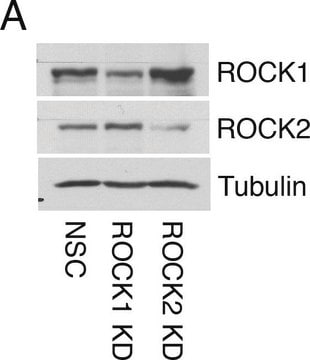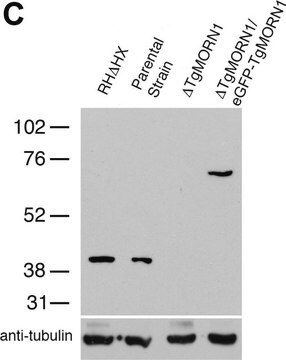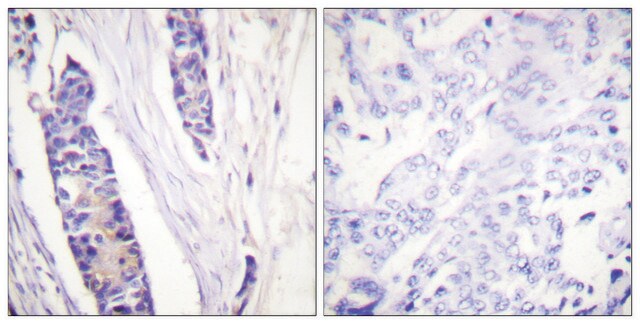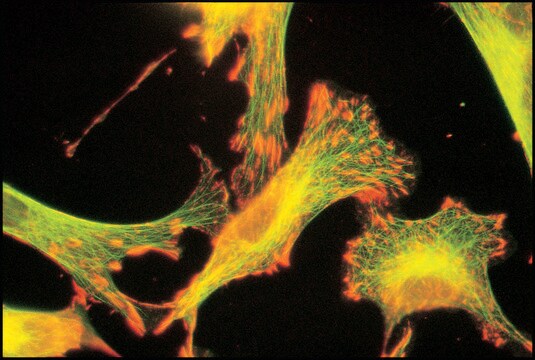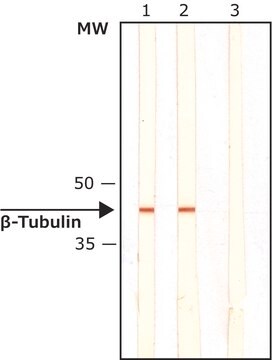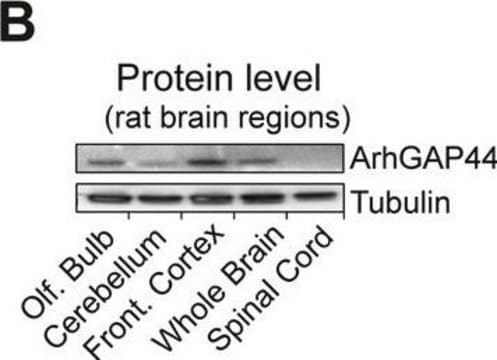T5293
Monoclonal Anti-β-Tubulin antibody produced in mouse

clone 2-28-33, ascites fluid
Synonym(s):
Anti-β-Tubulin Antibody
About This Item
Recommended Products
biological source
mouse
Quality Level
conjugate
unconjugated
antibody form
ascites fluid
antibody product type
primary antibodies
clone
2-28-33, monoclonal
contains
15 mM sodium azide
species reactivity
Ciona intestinalis, rat, chicken, Caenorhabditis elegans, Strongylocentrotus purpuratus, bovine, human
enhanced validation
independent ( Antibodies)
Learn more about Antibody Enhanced Validation
technique(s)
indirect immunofluorescence: 1:1,000 using cultured chicken fibroblasts or cultured human foreskin fibroblasts
western blot: 1:100
isotype
IgG1
UniProt accession no.
shipped in
dry ice
storage temp.
−20°C
target post-translational modification
unmodified
Gene Information
human ... TUBB1(81027) , TUBB2A(7280) , TUBB2C(10383)
rat ... Tubb2(29212) , Tubb2c(296554)
Related Categories
General description
Specificity
Immunogen
Application
Biochem/physiol Actions
Disclaimer
Not finding the right product?
Try our Product Selector Tool.
recommended
Storage Class Code
10 - Combustible liquids
WGK
WGK 3
Flash Point(F)
Not applicable
Flash Point(C)
Not applicable
Regulatory Listings
Regulatory Listings are mainly provided for chemical products. Only limited information can be provided here for non-chemical products. No entry means none of the components are listed. It is the user’s obligation to ensure the safe and legal use of the product.
JAN Code
T5293-VAR:
T5293-BULK:
T5293-100UL:
T5293-.2ML:
T5293-.5ML:
Choose from one of the most recent versions:
Certificates of Analysis (COA)
Don't see the Right Version?
If you require a particular version, you can look up a specific certificate by the Lot or Batch number.
Already Own This Product?
Find documentation for the products that you have recently purchased in the Document Library.
Customers Also Viewed
Articles
Microtubules of the eukaryotic cytoskeleton are composed of a heterodimer of α- and β-tubulin. In addition to α-and β-tubulin, several other tubulins have been identified, bringing the number of distinct tubulin classes to seven.
Our team of scientists has experience in all areas of research including Life Science, Material Science, Chemical Synthesis, Chromatography, Analytical and many others.
Contact Technical Service